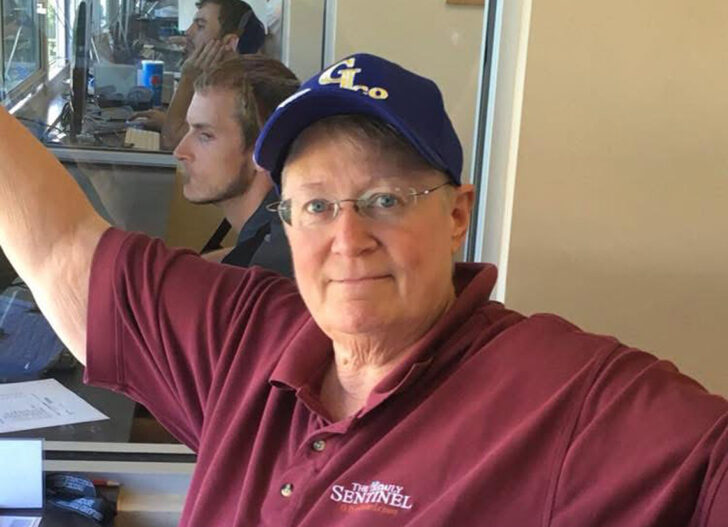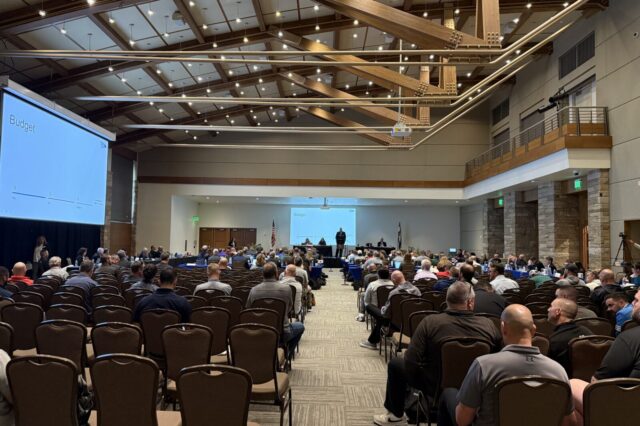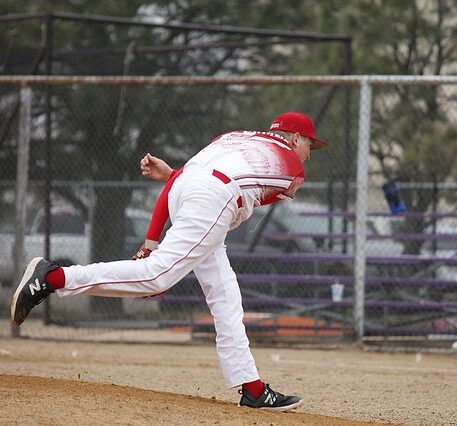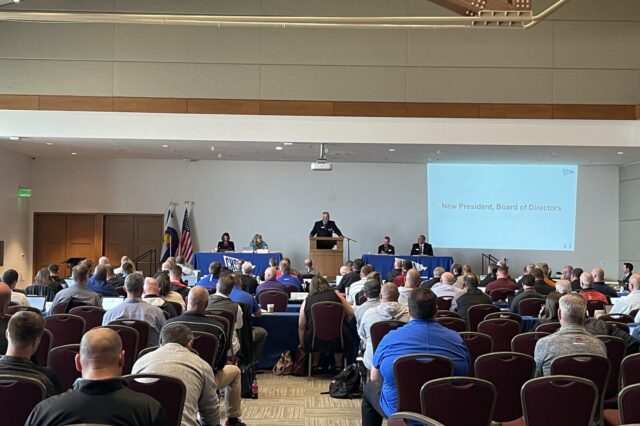It’s RBI, not RBIs. Runs batted ins makes zero sense.
Future editors (and AP Style) disagree, but 19-year-old me had that drilled into my head by Grand Junction sports journalism legend Patti Arnold. She died last weekend and, ironically, I don’t have the right words to capture my feelings about it.
More than 15 years later, I still have a list of Patti-isms that hung on the right side of my cubicle at the Grand Junction Daily Sentinel. Von Miller isn’t a Pro Bowler. That title is reserved for the folks who spin bowling balls for a living and needs no capitalization. A homer is a fan of the home team, not an acceptable replacement for home run. And forget about dinger. That abomination is a proper noun reserved for the tiny chance you’re mentioning the mascot of the Colorado Rockies. I only got that past her one memorable time when the Colorado Rockies brought their Rookie-level club to Grand Junction.
I started that list, perhaps optimistically, on a single sheet from my very first reporter’s notebook. After almost eight years of working in the sports department with her, it grew to three sheets, encompassing notes on where AP Style was incorrect, the finer details of laying out agate pages and dozens of other things she taught me to check.
That list was as much about self-preservation as it was reference, because Patti had an unmatched eye for detail and wasn’t afraid to let you know when you were wrong. She gave me my shot in the industry as a college kid who couldn’t write much more than overly dense game recaps. I annoyed the hell out of her, especially early in my career, but she kept on teaching me and I’m forever grateful for that.
The first lesson she taught me about being a good journalist is that accuracy matters. Accuracy isn’t just about getting your facts straight. It’s about being precise. In an age where digital media outlets and blogs were emerging, Patti made you care about the print product. Print was forever, so you had to get it right.
It also meant you didn’t have infinite space to drone on and on. She valued clear, economical writing — a lesson I struggle with to this day. Eighteen column inches meant 18 column inches and the digital chainsaw was coming out if you went one line over. That’s on the rare occasion her digital red pen didn’t trim the fat first.
She taught me the finer points of conducting interviews. Which coaches to watch out for and how to best hound them for results. When to come out swinging and when a lighter touch was required. She chided me for not using a paper scorebook and simply made me better as a journalist and writer. She knew a thousand and one things about newspaper layout, and it’s a skill that helped me keep a job in an industry that begs for excuses to lay you off.
Patti gave SEC-level coverage to Division II Colorado Mesa University. I’m not the right person to eulogize it, but there are few people as passionate about Mavericks as she was. She was downright defensive of that beat and told so many stories about the athletes who attended (and still attend) that school. That university lost a beloved member of the community, as did her other collegiate passion, the Kansas Jayhawks.
Above all, she shared with so many a love for the NJCAA World Series. She literally wrote the book on it. JUCO’s Journey is 150 pages showcasing history and memories from the best sporting event in Colorado. There isn’t a bigger supporter of the Challenger game outside of the volunteers who organize it. There are baked goods, home run bingo and decades of historical context. She not only wrote thousands of stories for the Grand Junction Daily Sentinel over a decades-long career. She appeared on the radio, worked on the JUCO Committee, ran the JUCO website and regularly manned the official stats.
Every person even remotely associated with the tournament has a Patti story. Most of mine take place on the first day of one of the 10 tournaments I covered, either before the first game at 9 a.m. or following the final contest of that marathon day — often well after midnight. It gives me comfort that Patti’s name will continue to adorn a baseball in Suplizio Field’s Home Run Alley, so she can watch over the tournament she loved so much.
If there’s a Mount Rushmore for JUCO, there’s Jay Tolman and D.S. Dykstra, the men who brought the tournament to Grand Junction. Sam Suplizio, Bus Bergman and Jamie Hamilton, the leaders who kept it in the city for the following decades. Patti belongs up there with all of them as the tournament’s ultimate historian and champion.
My signed copy of JUCO’s Journey has a simple message: “Matt — enjoy the journey!”
My journalism journey got its start thanks to Patti taking a chance on an annoying 19-year-old who just wanted to write about sports. Thank you. This story is slightly longer than it needs to be in your honor.
There isn’t a bigger figure in Grand Junction sports journalism than Patti Arnold. The athletes in this state — either to attend college or play on junior college’s brightest sports stage — are poorer without her.



